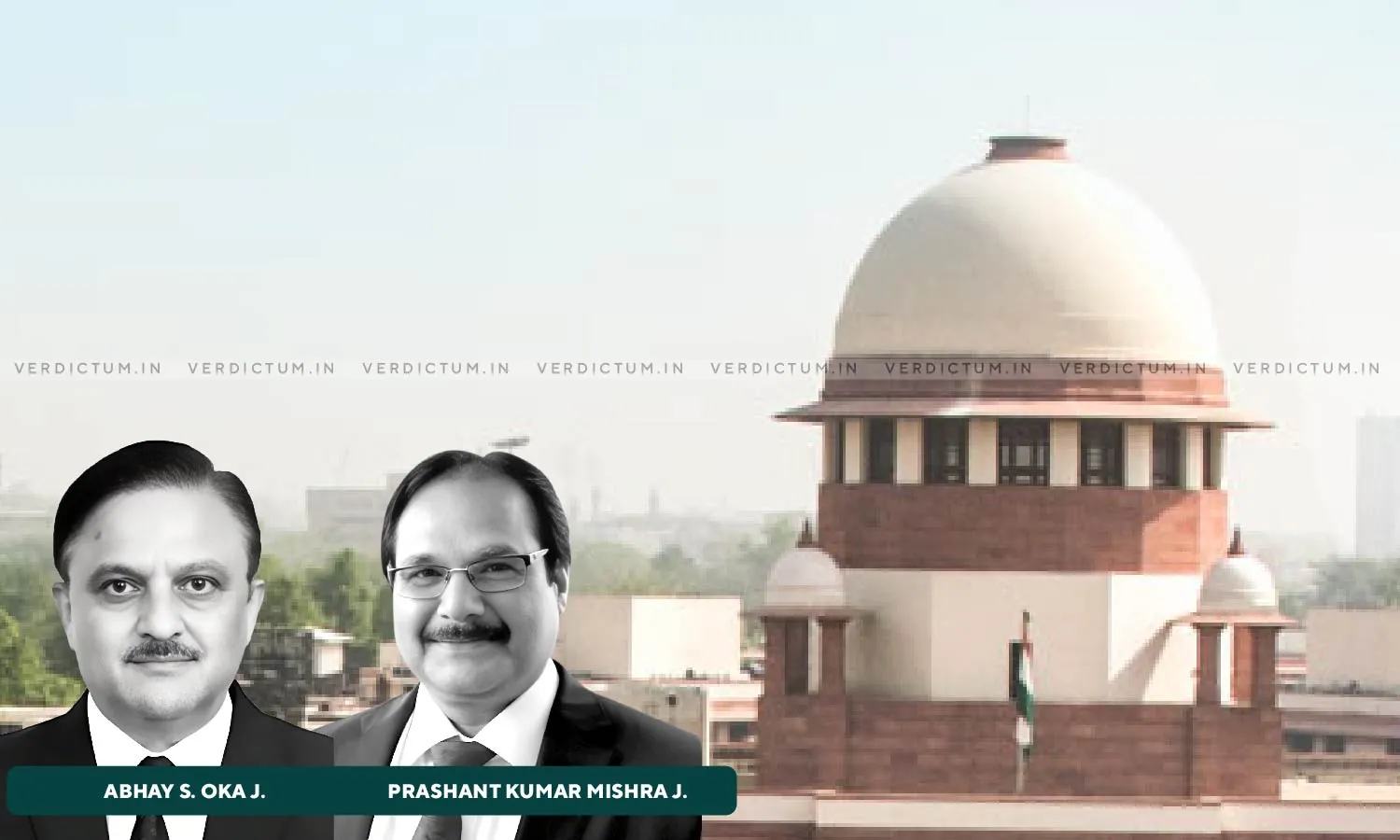Supreme Court Reinstates Lecturer’s Claim For Pay Protection, Overturns Division Bench Decision Due To Erroneous Approach

The Supreme Court recently overturned a Division Bench’s decision finding its entire approach to be erroneous while considering the question as to whether the appellant was holding a post in Academic Staff College on adhoc basis or was working against a leave/suspension or any other shortterm vacancy.
“The entire approach of the Division Bench was erroneous when it came to the conclusion that the appellant was not appointed on a substantive basis and, therefore, she does not satisfy the criteria laid down by Article 77D. The Division Bench has completely ignored that the only exception carved out to Article 77D was in respect of a government servant holding a post on adhoc basis or working against leave/suspension or any other shortterm vacancy. Hence, the case of the appellant was not covered by the said exception carved out to the third proviso by Article 77D.”
A two judge Bench of Justice Abhay S. Oka and Justice Prashant Kumar Mishra held that the appointment of the appellant with the Academic Staff College was not against a short¬ term vacancy. The appellant was not holding the post of Lecturer in Academic Staff College on ad¬hoc basis and was not working against leave/suspension vacancy.
The appellant had applied for a Lecturer position at the University of Kashmir's Academic Staff College based on an advertisement. She was appointed on tenure basis from September 8, 2001. Later, the appellant applied for a Lecturer position in English at a government-aided college. She was appointed on a regular temporary basis from June 16, 2005, with the same pay scale as her initial appointment. The appellant requested pay protection, which was denied by the college's Executive Committee in 2012 and 2014. The appellant filed a writ petition, and a Single Judge had ruled in her favor for pay protection. However, a Division Bench overturned this decision in February 2022.
Advocate Abhishek Gupta (AOR) appeared for the Appellant and Advocate Shailesh Madiyal (AOR) appeared for the Respondents.
The appellant's counsel argued that the appellant's initial appointment wasn't on a tenure post but a regular one. The University Grants Commission's guidelines allowed the extension of her tenure based on performance assessment. They cited the Government Provident Fund-cum-Pension-cum-Gratuity benefit granted to the appellant as per the 6th respondent's advertisement. They also invoked Article 77-D of the Regulations, claiming entitlement to pay protection. The 1st respondent's counsel countered that the appellant's appointment was for a fixed tenure, invoking the third proviso to Article 77-D. They argued that Article 77-D didn't apply since the appellant was no longer employed by the 6th respondent. The Division Bench's decision was supported as the correct one.
The Court carefully considered the submissions and documents. The Court found that he appellant's appointment was on a substantive post with a tenure basis as per the University Grants Commission's Guidelines. The advertisement for the post indicated "tenure basis" and did not mention it as ad-hoc or temporary.
“Against some of the posts, it is mentioned that the same was temporary but was likely to become permanent. What is important is that against the post held by the appellant, there is no remark that either it was a temporary post or a plan post. What is written in the bracket against the said post is “tenure basis”. Thus, the post was not ad hoc or temporary or plan post. The post was permanent on which appointment was to be made on tenure basis.”
The Court further stated that the appellant was granted G.P. Fund benefits, further indicating her substantive position. The Court held that the appellant's case fell within the third proviso of Article 77-D, and the 1st and 2nd respondents acknowledged that the Regulations applied to her. The Division Bench's decision was erroneous, as it disregarded the exception to Article 77-D.
Thus, the appellant's entitlement to pay protection was restored, and the judgment was set aside. The 1st and 2nd respondents were directed to grant pay protection and arrears to the appellant within specified time frames. The appeal was allowed with no costs.
Cause Title: Asma Shaw v. The Islamia College of Science & Commerce Srinagar Kashmir & Ors.
Click here to read/download Judgment


